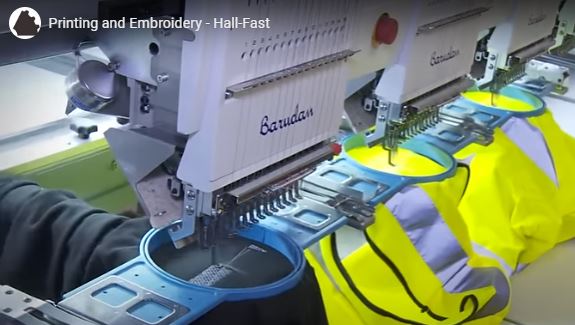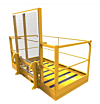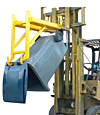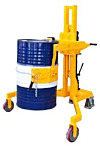
Introduction: Transforming the UK Workwear Landscape
The UK workwear industry stands at the threshold of unprecedented transformation, driven by technological innovation, evolving workplace requirements, and increasing emphasis on sustainability and worker wellbeing. As we advance through 2025 and beyond, the traditional concepts of workwear are being revolutionised by smart textiles, advanced materials, and digital integration that promise to enhance worker safety, comfort, and productivity in ways previously unimaginable.
Hall-Fast, with nearly 20 years of industry leadership since August 2006, has positioned itself at the forefront of this transformation. Our extensive experience serving diverse industries across the UK and internationally has provided us with unique insights into emerging trends and future requirements. This forward-thinking approach, combined with our comprehensive portfolio of approximately 200,000 standard items and award-winning customisation services, enables us to guide our clients through the evolving workwear landscape while maintaining our commitment to excellence and innovation.
The convergence of multiple technological and social trends is creating unprecedented opportunities for workwear innovation. From smart fabrics that monitor worker health to sustainable materials that reduce environmental impact, the future of workwear promises to deliver benefits that extend far beyond traditional protection and comfort considerations.
Smart Textiles and Wearable Technology Integration
The integration of smart textiles and wearable technology represents one of the most significant developments in modern workwear evolution. These advanced materials and systems can monitor worker vital signs, environmental conditions, and performance metrics in real-time, providing valuable data that enhances safety and productivity while reducing the risk of workplace accidents and health issues.
Current smart textile technologies include fabrics embedded with sensors that can detect changes in body temperature, heart rate, and stress levels. These monitoring capabilities are particularly valuable in high-risk environments where early detection of health issues could prevent serious accidents or medical emergencies. The data collected can be transmitted wirelessly to monitoring stations or mobile devices, enabling immediate response to potential problems.
Environmental monitoring capabilities extend smart workwear beyond personal health monitoring to include detection of hazardous gases, radiation levels, and other environmental threats. This capability is particularly important in industries such as chemical processing, nuclear energy, and mining, where workers may be exposed to invisible hazards that could pose serious health risks.
GPS tracking and location services integrated into workwear provide enhanced safety capabilities for workers in remote or hazardous locations. This technology enables immediate location identification in emergency situations while providing valuable data about worker movement patterns and productivity metrics.
Hall-Fast recognises the immense potential of smart textiles and is actively evaluating partnerships with technology developers to bring these innovations to our customers. Our technical expertise and market knowledge position us well to identify the most promising technologies and help clients implement smart workwear solutions that provide genuine value and practical benefits.
Sustainable Materials and Environmental Responsibility
Sustainability has become a central consideration in workwear development, with increasing emphasis on materials that reduce environmental impact throughout their lifecycle. This shift reflects growing environmental awareness among businesses and workers, as well as regulatory pressures that encourage adoption of more sustainable practices.
Recycled fibres and materials are becoming increasingly sophisticated, with new processing technologies enabling creation of high-performance fabrics from recycled content. These materials can now match or exceed the performance characteristics of traditional fabrics while significantly reducing environmental impact through reduced resource consumption and waste generation.
Bio-based materials derived from renewable sources offer another avenue for sustainable workwear development. Advanced processing technologies can create high-performance fibres from materials such as hemp, bamboo, and other plant-based sources, providing sustainable alternatives to traditional synthetic materials.
Circular economy principles are influencing workwear design and manufacturing, with increasing emphasis on products designed for disassembly, recycling, and reuse. This approach considers the entire product lifecycle, from raw material sourcing through end-of-life disposal, ensuring minimal environmental impact throughout the product's existence.
Hall-Fast is committed to supporting our clients' sustainability goals through careful selection of environmentally responsible products and suppliers. Our partnership with manufacturers who share our commitment to sustainability ensures our customers have access to the most advanced sustainable workwear options available while maintaining the performance standards required for their applications.
Advanced Protection Technologies and Safety Innovation
The evolution of protection technologies continues to advance rapidly, with new materials and design concepts providing enhanced safety capabilities while maintaining or improving comfort and usability. These developments are particularly important as workplace hazards become more complex and worker safety standards continue to evolve.
Nanotechnology applications in workwear include materials that provide enhanced protection against chemical hazards, improved durability, and self-cleaning properties. These advanced materials can provide superior protection while reducing maintenance requirements and extending garment life, providing both safety and economic benefits.
Phase change materials (PCMs) offer innovative solutions for temperature regulation, automatically adjusting to maintain optimal body temperature in varying environmental conditions. This technology is particularly valuable for workers who experience significant temperature variations throughout their shifts or who work in extreme temperature environments.
Impact protection innovations include materials that remain flexible during normal use but instantly harden upon impact, providing superior protection without compromising mobility or comfort. These materials are particularly valuable for applications where traditional rigid protection would be impractical or uncomfortable.
Antimicrobial treatments and materials provide enhanced hygiene capabilities, particularly important in healthcare, food service, and other applications where contamination control is crucial. Advanced antimicrobial technologies can provide lasting protection while maintaining fabric breathability and comfort.
Digital Customisation and On-Demand Manufacturing
Digital technologies are revolutionising workwear customisation and manufacturing, enabling unprecedented flexibility, speed, and personalisation capabilities. These advances allow businesses to create truly unique workwear solutions while maintaining cost-effectiveness and rapid delivery times.
Digital printing technologies, including DTF printing, continue to advance in terms of quality, durability, and efficiency. These improvements enable increasingly sophisticated customisation options while maintaining competitive pricing across all order sizes. Hall-Fast's investment in advanced DTF printing capabilities positions us at the forefront of these developments.
3D body scanning and fitting technologies promise to revolutionise workwear fit and comfort by enabling precise measurement and customised sizing. This technology could eliminate fit issues that compromise comfort and safety while reducing returns and exchanges associated with sizing problems.
On-demand manufacturing capabilities reduce inventory requirements while enabling rapid response to customer needs. This approach is particularly valuable for businesses with fluctuating workforce sizes or those requiring rapid deployment of new workwear programmes.
Automated design systems utilise artificial intelligence to optimise designs for specific applications and requirements. These systems can consider multiple factors including safety requirements, comfort preferences, and aesthetic considerations to create optimal designs automatically.
Workplace Evolution and Changing Requirements
The modern workplace continues to evolve rapidly, driven by technological advancement, changing work patterns, and evolving employee expectations. These changes are creating new requirements for workwear that must adapt to support diverse working styles and environments.
Remote and hybrid working arrangements are creating demand for workwear that transitions seamlessly between different environments while maintaining professional appearance and functional capabilities. This trend requires garments that combine the comfort of casual wear with the professionalism of traditional business attire.
Multi-generational workforces have diverse preferences and requirements that must be accommodated in modern workwear programmes. Younger workers often prioritise sustainability and style, while experienced workers may emphasise durability and traditional functionality. Successful workwear programmes must address these diverse preferences while maintaining consistency and safety standards.
Increased focus on worker wellbeing extends beyond traditional safety considerations to include comfort, mental health, and overall quality of life factors. Modern workwear must contribute positively to worker wellbeing while maintaining its protective and functional capabilities.
Gender inclusivity in workwear design has become increasingly important, with demand for options that accommodate all body types and personal preferences. This trend requires more sophisticated sizing systems and design approaches that ensure comfort and functionality for all workers.
Industry 4.0 Integration and Data Analytics
The integration of workwear with Industry 4.0 technologies creates opportunities for unprecedented data collection and analysis that can drive significant improvements in safety, productivity, and operational efficiency. This integration represents a fundamental shift from passive protection to active participation in workplace optimisation.
Real-time data collection from smart workwear can provide valuable insights into worker behaviour, environmental conditions, and operational efficiency. This data can identify patterns and trends that inform better decision-making about workplace safety, productivity improvements, and resource allocation.
Predictive analytics applications can utilise workwear data to anticipate potential problems before they occur, enabling proactive interventions that prevent accidents, equipment failures, and other costly issues. This capability represents a significant advancement from reactive problem-solving to proactive risk management.
Integration with existing business systems enables workwear data to be combined with other operational information, creating comprehensive views of business performance and identifying opportunities for improvement. This holistic approach can reveal insights that would be impossible to identify from individual data sources.
Machine learning applications can continuously improve the value of workwear data by identifying increasingly sophisticated patterns and relationships. These systems can adapt to specific business environments and requirements, becoming more valuable over time as they accumulate data and experience.
Hall-Fast's Innovation Strategy and Future Vision
Hall-Fast's approach to innovation reflects our nearly 20 years of industry experience and our commitment to providing cutting-edge solutions that deliver genuine value to our customers. Our innovation strategy encompasses technology evaluation, partner collaboration, and customer consultation to ensure we remain at the forefront of industry development.
Technology partnerships with leading developers and manufacturers provide us with early access to emerging innovations and the opportunity to influence development priorities. These relationships ensure our customers benefit from the latest advances while providing feedback that shapes future development.
Customer collaboration in innovation projects ensures new technologies and products address real-world needs and challenges. Our extensive customer base across diverse industries provides valuable insights that guide our innovation priorities and development activities.
Investment in advanced capabilities includes both technology infrastructure and human expertise necessary to evaluate, implement, and support innovative solutions. This investment ensures we can provide expert guidance and support as new technologies become available.
Research and development activities include both independent evaluation of emerging technologies and collaborative projects with partners and customers. These activities ensure we maintain deep understanding of technological trends and their practical applications.
Regulatory Evolution and Compliance Considerations
The regulatory landscape for workwear continues to evolve as new technologies and applications emerge, creating both opportunities and challenges for businesses seeking to implement innovative solutions while maintaining compliance with safety and quality standards.
Emerging regulations for smart textiles and wearable technologies are being developed to address privacy, data security, and safety considerations associated with these new capabilities. Businesses implementing these technologies must ensure compliance with evolving regulatory requirements while maximising the benefits available from these innovations.
International harmonisation of standards facilitates global business operations while ensuring consistent safety and quality standards across different markets. This harmonisation is particularly important for multinational businesses and those involved in international trade.
Sustainability regulations are increasing in scope and complexity, requiring businesses to consider environmental impact throughout the product lifecycle. These regulations are driving innovation in sustainable materials and manufacturing processes while creating new compliance requirements.
Data protection and privacy regulations affect smart workwear applications that collect and process personal information. Businesses implementing these technologies must ensure compliance with applicable privacy laws while maximising the operational benefits available from data collection and analysis.
Economic Implications and Investment Considerations
The evolution of workwear technology and requirements has significant economic implications for businesses across all sectors. Understanding these implications is crucial for making informed investment decisions that optimise both immediate and long-term value.
Initial investment requirements for advanced workwear technologies may be higher than traditional alternatives, but the long-term benefits often justify these investments through improved safety, productivity, and operational efficiency. Comprehensive cost-benefit analysis is essential for evaluating these opportunities effectively.
Productivity improvements from advanced workwear can provide significant economic benefits through reduced downtime, improved worker performance, and enhanced operational efficiency. These benefits often exceed the direct costs of the workwear investment, creating positive returns on investment.
Risk reduction benefits include lower accident costs, reduced insurance premiums, and improved regulatory compliance. These benefits can be substantial but are often difficult to quantify precisely, requiring careful analysis to understand their full value.
Competitive advantages from innovative workwear programmes can enhance business performance through improved customer perception, worker attraction and retention, and operational excellence. These strategic benefits often provide long-term value that extends beyond direct operational improvements.
Global Trends and International Perspectives
The UK workwear market is influenced by global trends and international developments that shape both technological advancement and market expectations. Understanding these global influences is important for anticipating future developments and opportunities.
International technology development often leads UK implementation, providing insights into future trends and opportunities. Monitoring global innovation activities enables early identification of promising developments and competitive positioning for their introduction to UK markets.
Cultural differences in workwear preferences and requirements influence global product development and create opportunities for specialised solutions. Understanding these differences enables more effective product selection and customisation for diverse applications.
Economic globalisation creates opportunities for collaboration and knowledge sharing while increasing competitive pressures. Successful businesses must balance global opportunities with local requirements and preferences.
Regulatory convergence facilitates international trade while maintaining safety and quality standards. This convergence creates opportunities for broader product applications and simplified compliance requirements.
Implementation Strategies and Best Practices
Successfully implementing innovative workwear solutions requires careful planning, stakeholder engagement, and systematic execution. Hall-Fast's experience with diverse implementation projects has provided valuable insights into effective approaches and common pitfalls.
Phased implementation approaches enable businesses to evaluate new technologies and solutions on a limited scale before committing to company-wide programmes. This approach reduces risk while providing valuable experience that informs broader implementation decisions.
Stakeholder engagement is crucial for successful implementation, requiring involvement of workers, safety professionals, and management throughout the process. Effective engagement ensures all perspectives are considered and builds support for new programmes.
Training and education programmes ensure workers understand how to use new workwear effectively while maximising safety and performance benefits. Comprehensive training is particularly important for advanced technologies that require specific knowledge or procedures.
Performance monitoring and evaluation systems enable continuous improvement and optimisation of workwear programmes. These systems provide data that guides future decisions while demonstrating the value achieved from workwear investments.
Future Market Predictions and Opportunities
Analysis of current trends and developments enables informed predictions about future market evolution and opportunities. These insights guide strategic planning and investment decisions while identifying potential challenges and risks.
Technology convergence will continue to create new opportunities and applications for workwear innovation. The combination of multiple technologies often produces capabilities that exceed the sum of individual components, creating breakthrough solutions and competitive advantages.
Market consolidation trends may influence supplier relationships and competitive dynamics. Understanding these trends enables better strategic planning and partnership decisions while identifying potential risks and opportunities.
Demographic changes will continue to influence workwear requirements and preferences. Aging populations, changing work patterns, and evolving expectations will create new market segments and opportunities for specialised solutions.
Environmental pressures will continue to drive innovation in sustainable materials and manufacturing processes. These pressures create both challenges and opportunities for businesses committed to environmental responsibility.
Conclusion: Partnering with Hall-Fast for Future Success
The future of UK workwear promises unprecedented opportunities for businesses committed to innovation, sustainability, and worker wellbeing. The convergence of smart technologies, sustainable materials, and digital capabilities will create workwear solutions that enhance safety, comfort, and productivity while supporting broader business objectives.
Hall-Fast's nearly 20 years of industry leadership, combined with our comprehensive product portfolio and award-winning customisation capabilities, positions us as the ideal partner for businesses seeking to navigate this evolving landscape successfully. Our commitment to innovation, quality, and customer service ensures we will continue to provide cutting-edge solutions that deliver exceptional value.
Our extensive experience across diverse industries, international recognition for excellence, and commitment to community involvement demonstrate our dedication to long-term success and stakeholder value. As the workwear industry continues to evolve, Hall-Fast will remain at the forefront of innovation while maintaining the personal attention and expertise that has defined our approach since 2006.
Contact Hall-Fast today to discuss how we can help you prepare for the future of workwear while meeting your current requirements. Our experienced team is ready to provide expert guidance and innovative solutions that position your business for continued success in an evolving marketplace.
Hall-Fast - Whatever Your Industry Needs Worldwide!
For more information about our innovative workwear solutions and customisation services, visit our printing and embroidery page or explore our comprehensive workwear collection. Contact our team through our contact page to discuss your future workwear requirements and discover how Hall-Fast can help you succeed in tomorrow's marketplace. Learn more about our company's commitment to excellence on our about page and explore our recognition for innovation and service on our awards page.












